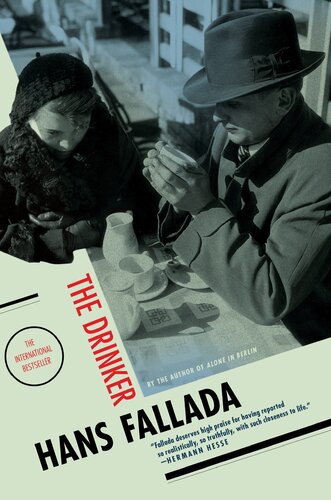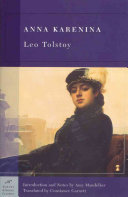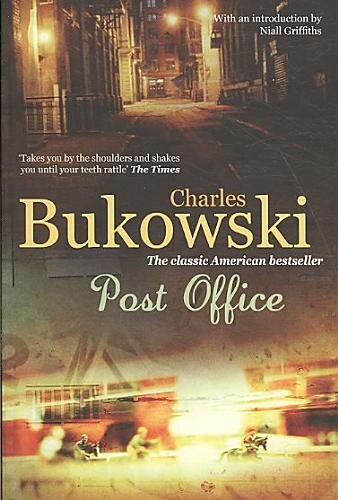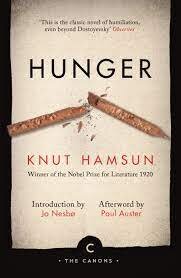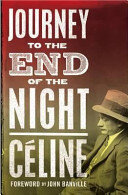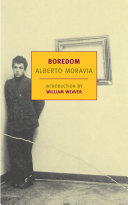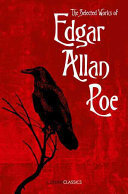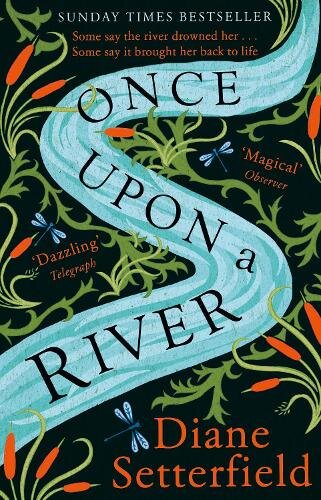-
Posts
470 -
Joined
-
Last visited
Content Type
Profiles
Forums
Events
Books
Everything posted by Hux
-
Sometimes, it autofills with the correct cover. Other times, it doesn't, so I just use a picture from my laptop.
-
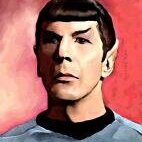
Your Book Activity - August 2022
Hux replied to lunababymoonchild's topic in Book Blogs - Discuss your reading!
Started reading Bread and Wine by Ignazio Silone -
Comedy and tragedy in equal measure. The first half of this book details the sudden alcoholism of the main character Erwin Sommer and his decent into chaos. His inability to see his own spiraling behaviour results in a series of moments which are actually very funny involving, as they do, a rather comedic lack of self-awareness. There's one moment, for example, where he's at work with his wife Magda and pretends to drop something behind his desk so that he can bend down to drink, all while believing that his wife is none the wiser. I actually laughed at this (it even reminded me of the drunk family from the Fast Show). This absurd behaviour continues and escalates until he finds himself trying to seduce a local barmaid (who weirdly acquiesces) before he eventually begins stealing money and silver from his own house (this resulting a physical altercation with his wife and a hollow death threat). He then rents a cheap room from a man named Lobedanz, a badgering weasel of a man, who endlessly manipulates the drunkard into giving him more money and jewelry. At one point, after withdrawing a significant amount of money (thousands) from the bank, the two of them wrestle in a train station toilet and Lobedanz takes the vast majority of the money. Sommer, however, is so thrilled to have enough left to buy drink, that he doesn't even appear remotely bothered by this. Which also made me laugh. This, however, is where the novel changes course quite abruptly. It stops being quite so funny. Sommer is soon arrested for the 'attempted murder' of his wife and ends up in gaol with some unsavoury characters (including, towards the end, Lobedanz) before being moved on to a psychiatric asylum. The descriptions of this world are clearly from his own experiences and he details, quite matter-of-factly, the homosexual relations taking place between the men. I was impressed by the way Fallada straight-forwardly approaches the subject matter. Sommer's time at the asylum makes him even more self-loathing and pathetic, slowly but surely allowing his growing resentment towards his wife to intensify despite the countless opportunities others have encouraged him to see for a potential reconciliation. This all culminates in a supervised meeting between Sommer and his wife at the very end of the book which is very blunt to say the least. Ultimately, this is the story of a man who is petty and selfish, immature and bitter (mostly because his wife is more competent than him). It begins with an almost comedic tone before setting up a rather more depressing second half. Given that Fallada wrote the book whilst in a Nazi asylum and was accused of attempted murder of his own wife, I think we can safely say it's very autobiographical. This was right up my street. Roman à Clefs are increasingly my preferred form of fiction, especially when they're written in such a clear and concise style.
-
Written in an encrypted notebook while incarcerated in a Nazi insane asylum and only discovered after his death, The Drinker may be Hans Fallada’s most breathtaking piece of craftsmanship. It is an intense yet absorbing study of the descent into drunkenness by an intelligent man who fears he’s lost it all. *** This is a Hybrid Book. Melville House HybridBooks combine print and digital media into an enhanced reading experience by including with each title additional curated material called Illuminations—maps, photographs, illustrations, and further writing about the author and the book. The Melville House Illuminations are free with the purchase of any title in the HybridBook series, no matter the format.
-
Despite the book's title, this book is actually about two people, Anna Karenina, and Konstantin Levin. I once read a review of the book which suggested that when young people read the novel, they are predominantly concerned with Anna's story, but when they read the novel again years later, with mature, world weary eyes, it is Levin's story that begins to resonate with them. To me, this is a rather self-congratulatory simplification. The truth is, I think the complete opposite is true. When I was Young, Levin's journey was far more interesting to me, full of profound questions about life, and meaning, and philosophy, and purpose. Meanwhile, Anna was just some silly girl who fell in love then offed herself because... boo hoo. I frankly had little interest in her and considered Levin, and his search for a place in the world, to be a significantly more powerful narrative. Now, with those aforementioned mature eyes, I have changed my mind. If anything, Levin is a spoiled child, privileged by his gender to pursue various self-indulgent interests and distractions, his freedom being the very thing that permits him to explore such meandering concerns while the world, struggling to continue beside him, plods along as normal. Anna, on the other hand, is caged by social circumstances, she cannot be who she wants to be, nor love who she wants to love. Life is designed by others and portioned off to those willing to commit to the expectations of class, gender and education. Anna must await, with baited breath, the permission of others before she can take any ownership of her existence. And, ultimately, she concludes that death is the only escape. Both stories have their compelling moments, and I was slightly disappointed that they met (or that their meeting was so... mediocre), but I supposed Tolstoy was making a point there too, one which pivoted on the very different journeys these two people were making. It is a truly spectacular novel, one which requires, deserves, several readings. A masterpiece.
-
Married to a powerful government minister, Anna Karenina is a beautiful woman who falls deeply in love with a wealthy army officer, the elegant Count Vronsky. Desperate to find truth and meaning in her life, she rashly defies the conventions of Russian society and leaves her husband and son to live with her lover. Condemned and ostracized by her peers and prone to fits of jealousy that alienate Vronsky, Anna finds herself unable to escape an increasingly hopeless situation.
-
This was my first Bukowski book. It took a while for me to get into it and I wasn't really grabbed until Joyce showed up and it became more than just a constant slew of references to fat asses and being hungover. I struggled a little to get used to the simplicity of the prose (not what I'm used to), and the varied and indiscriminate lengths of each chapter didn't help either. It just felt a bit sloppy. But once we encounter Joyce, I was pretty much hooked. Have since read Factotum, Women, and the excellent (and his best in my opinion) Ham on Rye. Bukowski is essentially a one trick pony but as tricks go, it's pretty good.
-
Loved this. This book took me by surprise. It's stunningly original, especially given that it was published in 1890. I kept having to check that particular date because it felt so contemporary and modern. I'm genuinely curious to know if this book might qualify as the first truly 'modernist' novel. There might be other candidates out there but this is certainly a contender. There is no plot (a marker for many modernist novels), and the book is a first person narration filled with inner dialogue and occasional stream of consciousness writing. Hamsun also has a curious habit of switching tenses (which I don't ever recall seeing before). He starts a sentence in past tense then concludes it in present tense and so on -- and it all works rather beautifully. There's also a rather blunt expression of sexual thoughts and images which most 19th century literature wouldn't touch and which, again, seems very modern. In fact, the two earlier translations both removed them (the translation by Sverre Lyngstad is the one you want). The basic plot is a young writer struggling to find work, food, and somewhere to sleep in Oslo. On one occasion, he sleeps in the woods, on another he volunteers to spend the night in the local prison as his only option. He's so hungry that he picks up a handful of wood chippings and eats them across the course of the day. And when he finally has some food, his body has become so accustomed to not having any that he vomits. All this is occurring as he is desperately tries to come up with articles which he might sell to the newspaper and his mind is slowly crumbling. There are times when he speaks to himself, when the internal monologue is vocalised, and there are moments when he seems unable to distinguish between reality and fantasy. As the book goes along, he appears to be falling apart and gradually losing his mind. And there is a woman named Ylajali whom he fixates on and eventually has a rendezvous with which quickly escalates into something sexually aggressive and confused. Again, this is not something I'd expect to see in a 19th century novel. This is a book about poverty and hunger at a time when it wasn't uncommon for most people to experience those things. This was such a superb read.
-
Nineteenth-century Kristiania is an unforgiving place, and work is thin on the ground. Roaming the streets of Norway's capital, a penniless young writer searches for inspiration whilst trying desperately to make ends meet. Driven to extraordinary lengths, sleeping under the stars with his stomach growling, the writer's behaviour becomes increasingly irrational and his world spirals into chaos. Hunger was Knut Hamsun's first novel and earned him the Nobel Prize for Literature in 1920. A disturbing and darkly humorous masterpiece of existential fiction, Hunger anticipated and influenced some of the twentieth century's most acclaimed writers including Camus, Kafka and Fante.
-
-
My favourite book. It begins in World War I with Bardamu (Celine's alter ego) and explores the trauma and futility of the war. Bardamu meets his doppelganger, Robinson, a character that comes and goes throughout this life (a character I have theories about). Bardemu goes to Africa which results in yet more suffering and confusion. Then he goes to New York and works at the Ford company and meets a prostitute called Molly. Then the book jumps ahead six years to when Bardamu has become a qualified doctor. He begins working in a working-class suburb of Paris and deals with horrific things such as botched abortions, miscarriages and the death of a local child. This is where Leon Robinson, becomes a regular character in his life. The book is often described as a celebration nihilism. Celine has very little respect for humanity. To him, it's suffering, crime, greed, and pain. He witnesses awful things but responds to them as though they're the utter embodiment of normalcy (the book is actually quite funny because of this). Even when Robinson plots to murder an old woman, Bardamu doesn't care, he simply thinks... 'it's nothing to do with me.' There's an underlying message about the trauma caused to both him and Robinson due to the war. They have both been numbed to the point that they are no longer human. The prose is some of the most exquisite I've ever come across. Which is interesting because it was made famous for its more authentic, real-life writing. Céline uses ellipses to add emphasis here and there (a technique he over uses in Death on Credit in my opinion) and he repeats sentences and words in a similar fashion. It's extremely effective. There's a chapter where he's on the boat to Africa which is amazing. It encapsulates humanities distrust of other people and their tendency to hate. Bardamu doesn't speak much or get involved so everyone on the ship turns against him and you genuinely feel the sense of threat, that they might actually kill him for daring to be different. Celine, of course, was a noted antisemite in real life. That might be an issue for some. Personally speaking, the fact that Celine is a fairly awful person himself only makes the book resonate more. I have a tendency to separate the artist form the art. And thank God because this book is a masterpiece.
-
First published in 1932, Journey to the End of the Night was immediately acclaimed as a masterpiece and a turning point in French literature. This edition contains a foreword by John Banville. Told in the first person, the novel is based on the author's own experiences during the First World War, in French colonial Africa, in the USA - where he worked for a while at the Ford factory in Detroit - and later as a young doctor in a working-class suburb in Paris. Celine's disgust with human folly, malice, greed and the chaotic state in which man has left society lies behind the bitterness that distinguishes his idiosyncratic, colloquial and visionary writing and gives it its force.
-
The novels that the great Italian writer Alberto Moravia wrote in the years following the World War II represent an extraordinary survey of the range of human behavior in a fragmented modern society. Boredom, the story of a failed artist and pampered son of a rich family who becomes dangerously attached to a young model, examines the complex relations between money, sex, and imperiled masculinity. This powerful and disturbing study in the pathology of modern life is one of the masterworks of a writer whom as Anthony Burgess once remarked, was "always trying to get to the bottom of the human imbroglio."
-
This ultimate collection of the infamous author’s works includes ‘The Raven’, ‘The Fall of the House of Usher’ and ‘The Tell-Tale Heart’. They focus on the internal conflict of individuals, the power of the dead over the living, and psychological explorations of darker human emotion. An American writer of fantastical, bizarre and sometimes disturbing short stories, Poe wrote in the first half of the nineteenth century. Preoccupied with delving into the darker reaches of the human psyche, Poe is inventor of the detective story and master of the macabre
-
The Selected Works of Edgar Allan Poe (1830s/40s) A collection of short stories, some wonderful, some slightly forgettable, but all written in utterly sublime prose. Personally speaking, I was mostly impressed with the stories that dealt with guilt rather than straight-up horror. That being said 'The Black Cat' stood out as the most macabre and haunting (and the creepy nature of 'The Facts in the Case of M. Valdemar' was fun). And I enjoyed 'The Pit and the Pendulum.' But the more famous stories (The Fall of the House of Usher and The Tell-Tale Heart) didn't entirely bowl me over (maybe because I had higher expectations for those). I was especially pleased with 'William Wilson.' This story immediately made me think of 'Fight Club.' The protagonist dealing with a doppelganger/alternative version of himself, one who torments and frustrates him at every turn. And speaking of inspiring other works, I must confess I knew nothing of the character Dupin, the genius French detective who is patently the origin of Sherlock Holmes. As I was reading 'The Murders in the Rue Morgue' I instantly wanted to shout... 'but this is clearly Sherlock!' I mean, it's so transparent. How did Doyle get away with that? Having read a couple of Holmes stories, I was entirely in the grips of experiencing deja vu as I read the piece. I was slightly perplexed by the bizarre reveal of the guilty party in the story but was utterly entranced by the writing and the narration by Dupin's unnamed friend (the Watson character). And then, in 'The Purloined Letter' all that was missing was a pipe and a deer stalker. Some of the stories (like 'The Balloon Hoax' and 'The Duc L'Omelett') left me somewhat underwhelmed. But even when I was reading these less appealing entries, Poe's style and flourish was always engaging. The prose always gives the impression of great intelligence at work, a mind exploring all manner of dark and fanciful ideas with rich, wonderful language. I think this collection contains a good mixture of his work (it ends with the fantastic 'The Raven') and I would highly recommend it. 8/10
-
On a winter's evening in 1887, a man bursts into the Swan pub on the Thames with a dead girl in his arms. Half an hour later, the girl is alive again and several characters claim her. Robin Armstrong (more so his father, Robert) who believes she is his missing daughter, abandoned by his ex wife. The Vaughans who believe she is their kidnapped daughter returned to them. And Lily White, who claims to have a deceased sister. All of this is investigated by what I would describe as the protagonist, Rita Sunday, a nurse who knows all the players involved. The book is very engaging, easy to read, and has a touch of magical realism to it. It's not the kind of thing I normally read and I wasn't entirely blown away. But I could see that it was a fun and entertaining yarn. If you enjoy plot driven books with a style to them that has an element of mystery (like those programmes on Sunday evening about a vicar solving crime (or some other amateur sleuth... there's a million of them) then you'll probably enjoy this. It's not my cup of tea but I found it mostly enjoyable as a read, though I did spend a lot of my time thinking... I could be reading something far more substantial instead of this. Along with the much better Piranesi, it's probably the only other contemporary novel I'll read this year as I'm becoming increasingly unmoved by them. It felt much like all the other contemporary novels I read (and it annoyed me how easily everyone began weeping... at one point, a character wept so much, their sleeve became damp... how?) Anyway, like I said, if you like plot driven mysteries, you'll probably like this.
-
In an ancient Inn on the Thames, the regulars are entertaining themselves by telling stories when the door bursts open and in steps an injured stranger. In his arms is the drowned corpse of a child. Hours later, the dead girl stirs, takes a breath and returns to life. Is it a miracle? Is it magic? And who does the little girl belong to? Set in 1887 and featuring a diverse cast of characters, the novel creates an atmosphere of intrigue which shares features with classic detective stories. But with a touch of the supernatural.
-
Most of the books I read are "Literary Fiction" but that seems a little broad. Can't think of a better alternative though. Also, how do I get an ISBN?
-
Can we add categories to the book list?
-

Your Book Activity - August 2022
Hux replied to lunababymoonchild's topic in Book Blogs - Discuss your reading!
Reading the selected works of Edgar Allan Poe. -
Dream Story (1926) Arthur Schnitzler A sublime novella that explores reality, dreams, sexuality, and guilt. Fridolin, a doctor, and his wife, Albertine, are putting their daughter to bed. After this they begin having an earnest discussion about their recent holiday to Denmark. Both of them confess to having been sexually attracted to other people on the holiday and agree to confess any such similar feelings in the future. The following day, Fridolin goes on his rounds visiting a patient who has died. He wanders the streets of Vienna and stops in a coffee shop where he bumps into his old friend, Nachtigall, a pianist. Nachtigall tells him a tale of his current occupation which involves being blindfolded, and given a secret password, and taken to different mansions where he plays for the guests. Occasionally, he will get a glimpse of what is happening and see naked men and women wearing masks. Fridolin is intrigued and convinces Nachtigall to provide the password. He follows him in a night coach and enters the party with the password. Inside, he sees all the naked women but is asked by someone to provide the secondary password. He is cornered. Then a woman comes to his aide, at enormous cost to herself, but he doesn't entirely know why. What follows is a bizarre and very dreamlike adventure. At one point, his wife literally gives him the details of one of her dreams and the whole thing feels very familiar and lingers to the point where you can't be sure if anything is real or not. The woman's motivations, the married couple's sexual desires and interests, all confused and swirling in a haze of Viennese coffee shops, antisemitism and sex workers. Apparently this book was the basis for Kubrick's 'Eyes Wide Shut.' I really enjoyed this. It had shades of Bataille's 'Story of the Eye' as well as Chesterton's 'The Man Who Was Thursday.' It was a delight to read. A mystery which is never solved. Like most dreams I suppose. 9/10
-
Death on Credit (1936) Louis Ferdinand Celine Death on Credit (or death on the installment plan) is essentially a prequel to Journey to the end of the night. Celine's alter ego now reminisces about his childhood and adolescence, the vast majority of which revolves around his abusive and mercurial father and his (cartoonishly) hysterical mother. Ferdinand then endeavours to get work but always appears to fall flat before engaging in a series of sexual escapades that border on the fantastical (it's hard not to find them almost comical in their ludicrous unrealistic portrayals). His experiences in a English boarding school contains a segment at the end which can only be described as... absolute horseshit (in the sense that it's hilarious). After that there's more whining from his parents before Ferdinand hooks up with an inventor (Courtial) who gives him a job at his magazine and gets him to help with his hot air balloon shenanigans. The book ends with Ferdinand, Courtial and Courtial's wife heading for the country where they hope to make it big in agriculture. For me, the book doesn't come close to the exquisite quality of Journey. Everything that made that books so compelling is slightly overdone here. The use of ellipses to control and influence the writing was used sparingly in Journey but here, it's just every single sentence. 'I went to the shop... Then bought some cheese... I saw the shopkeeper's daughter... She said hello.' After a while, it starts to lose any of the impact it had in Journey and simply becomes a thing... that's there... constantly. Not that it spoils things, it's just over used in my opinion. Likewise, the use of repetition is heavy handed. In Journey, it was sporadic and effective but here it's just relentless. I'd say about 50% of the book is just descriptions of his mother's exaggerated histrionics. She implored... she implored... she implored. Then five pages later. She implored... she implored... she implored. I'll admit, Celine hits you over the head with this stuff so much that it seeps into your brain and gives you a real sense of being saturated in the experience. But it's just not that fun to read. Fundamentally, what made Journey so good was the variety of experiences (War, sailing, Africa, New York, Paris etc). Death on Credit, however, stays in the same places and with the same people for too long until you're craving something new. The most thrilling part of the book for me was when he goes to boarding school in England and finally, we have new characters and experiences to explore (rather than just more of his mother's melodramatic swooning). This was such a fun part of the book where we meet the kid who barks like a dog and sucks off the other boys. Where we meet the beautiful wife of the school master. As well as Jongkind, the mentally retarded boy. Suddenly, things are interesting, well paced, original, exciting, and unique again. But it doesn't last long. That all being said, Celine still conjures up a world that drills its way into your head and paints a picture which is thoroughly detailed and real (all done with endless repetition). His cynicism is as present as ever, his nihilism, his low opinion of mankind. It's hard not to like. I just wish there could have been a few more moments of respite from the persistent (and often punishing) onslaught of repetition. 8/10
-
Interesting article on Céline and separating the artist from the art. "If we demand that our artists be angels, we will not have any art left to appreciate." https://quillette.com/2022/07/11/celine-literary-antichrist/
-
Just realised I posted on the 2021 thread, so here's a new one. Star Trek: Strange New Worlds. I gave up on Discovery after season two. Just awful. I stuck with Picard because I like so many of those characters (but it was even worse). So far, Strange New Worlds has been... not too bad. They're exploring space, visiting aliens, and dealing with ethical dilemmas at least
-
Reading Death on Credit by Celine (sometimes translated as Death on the Installment Plan).


